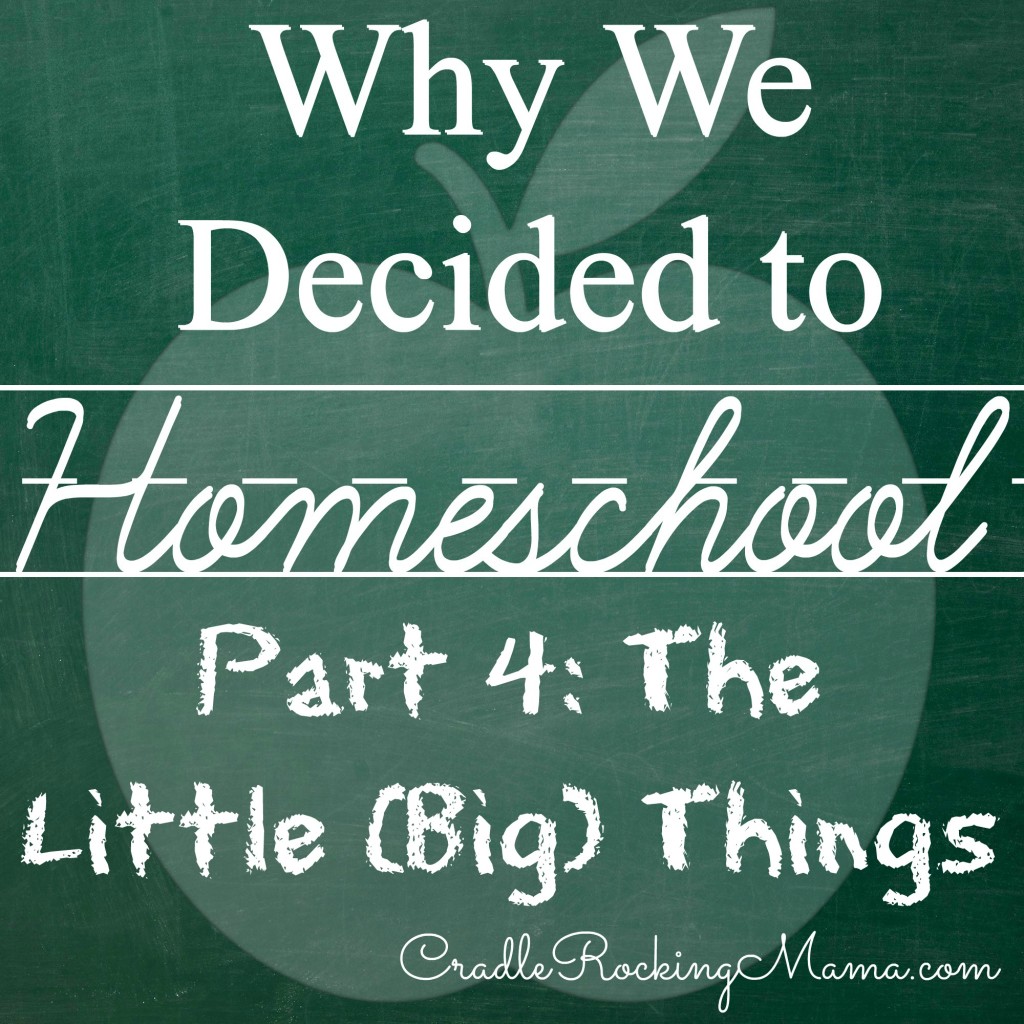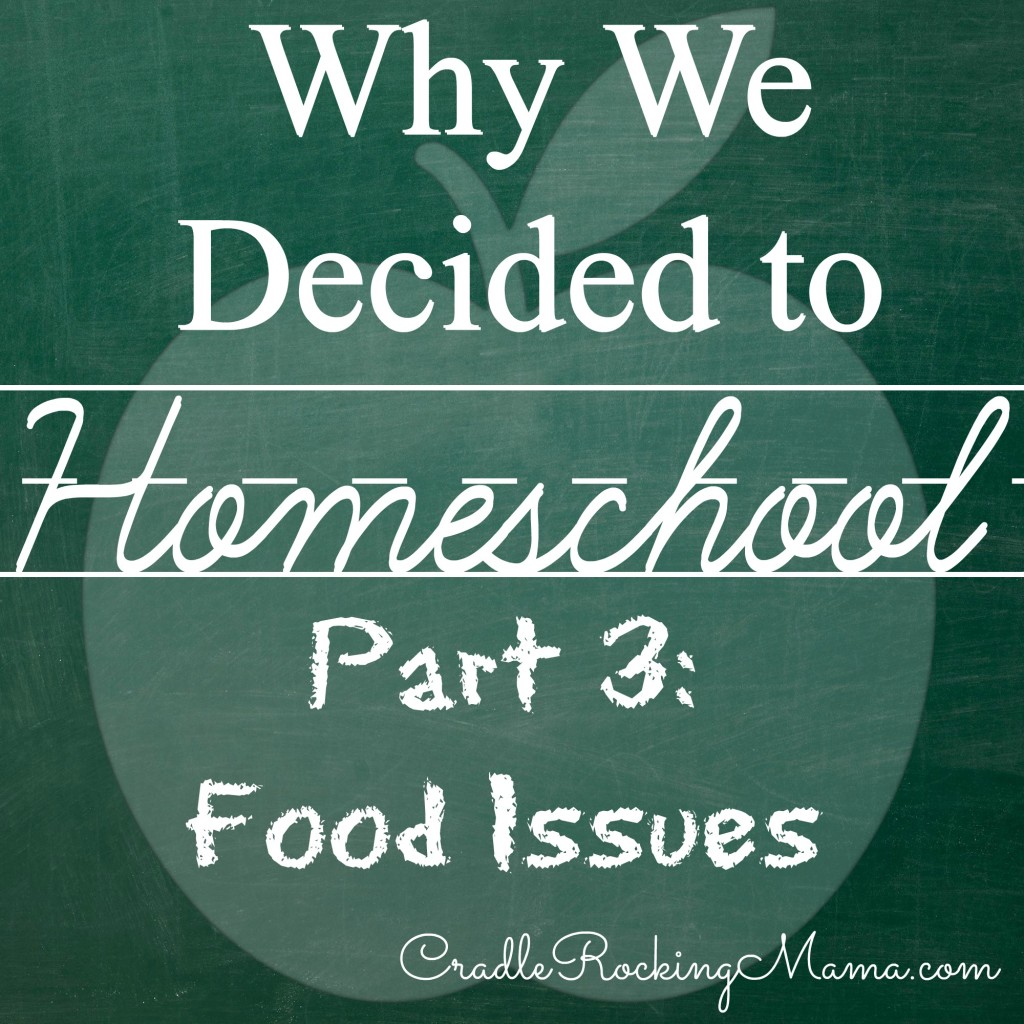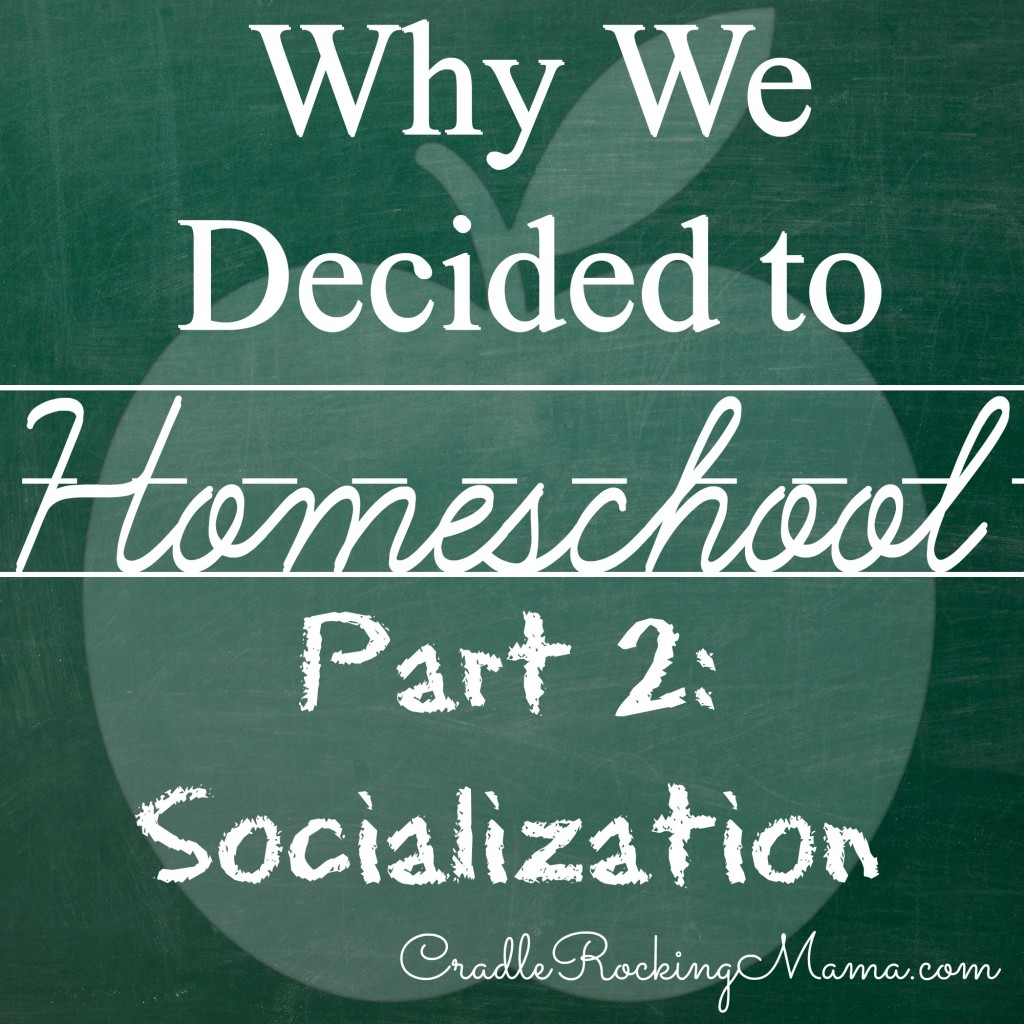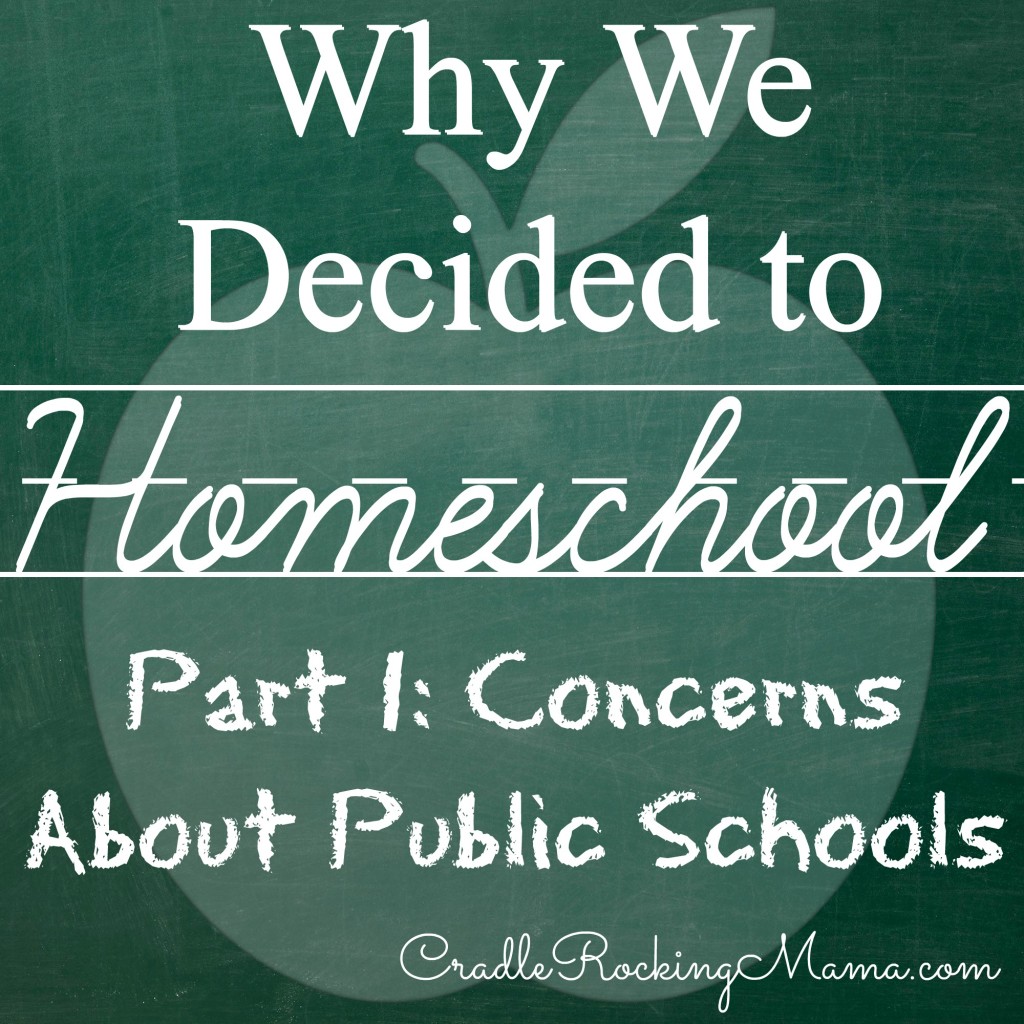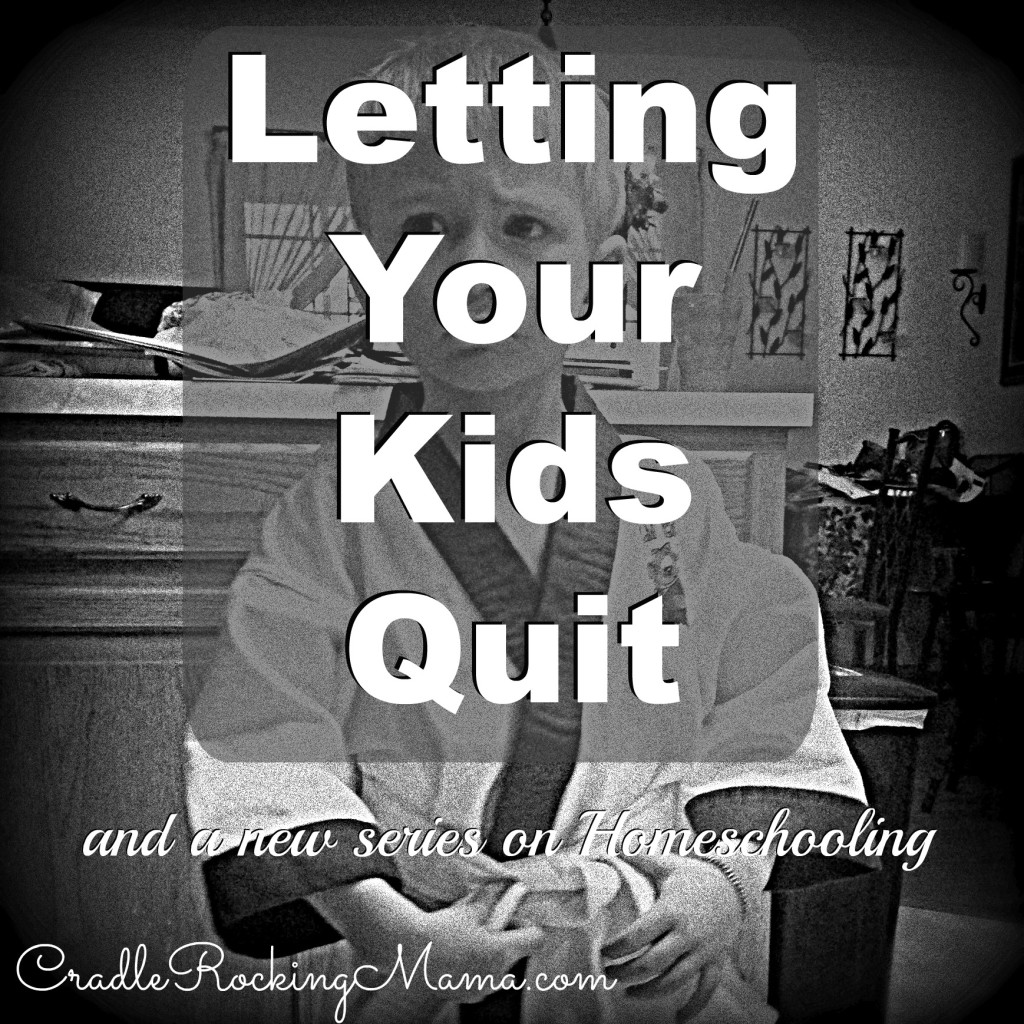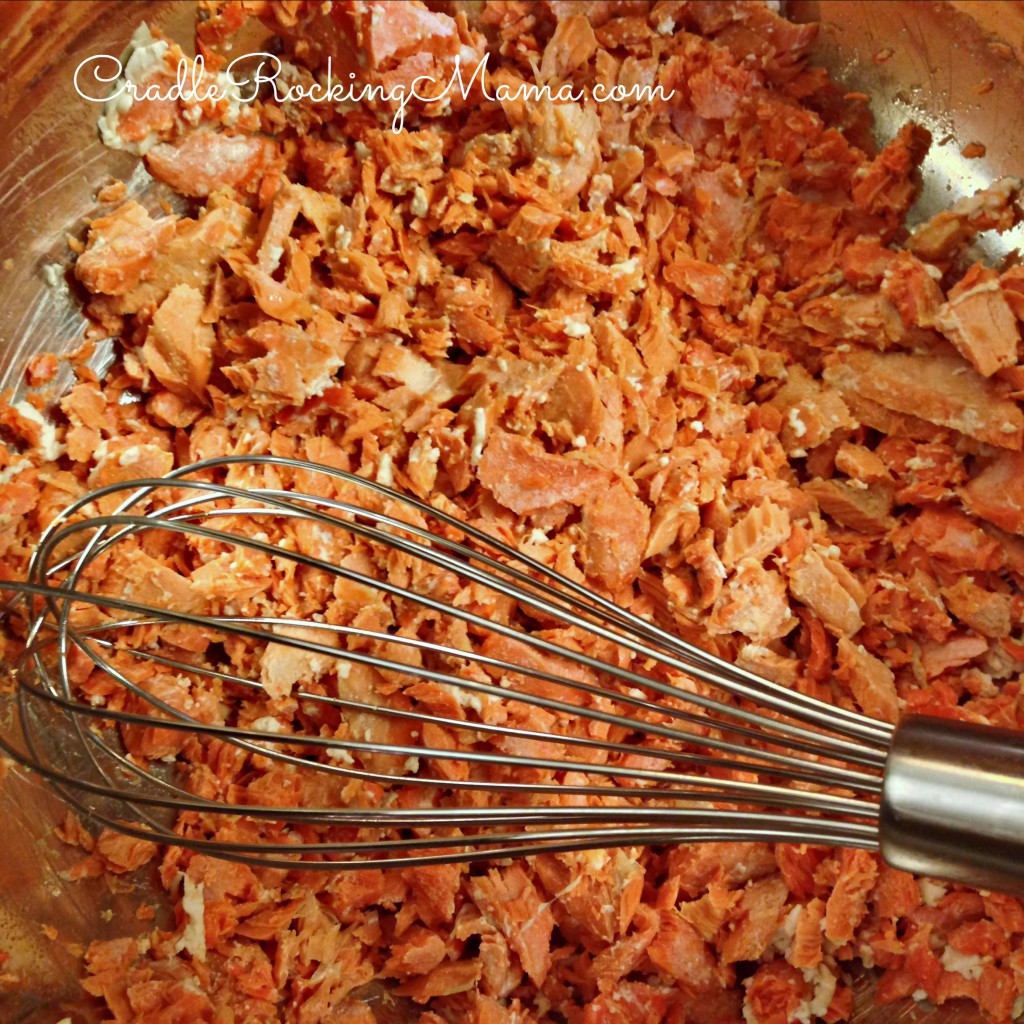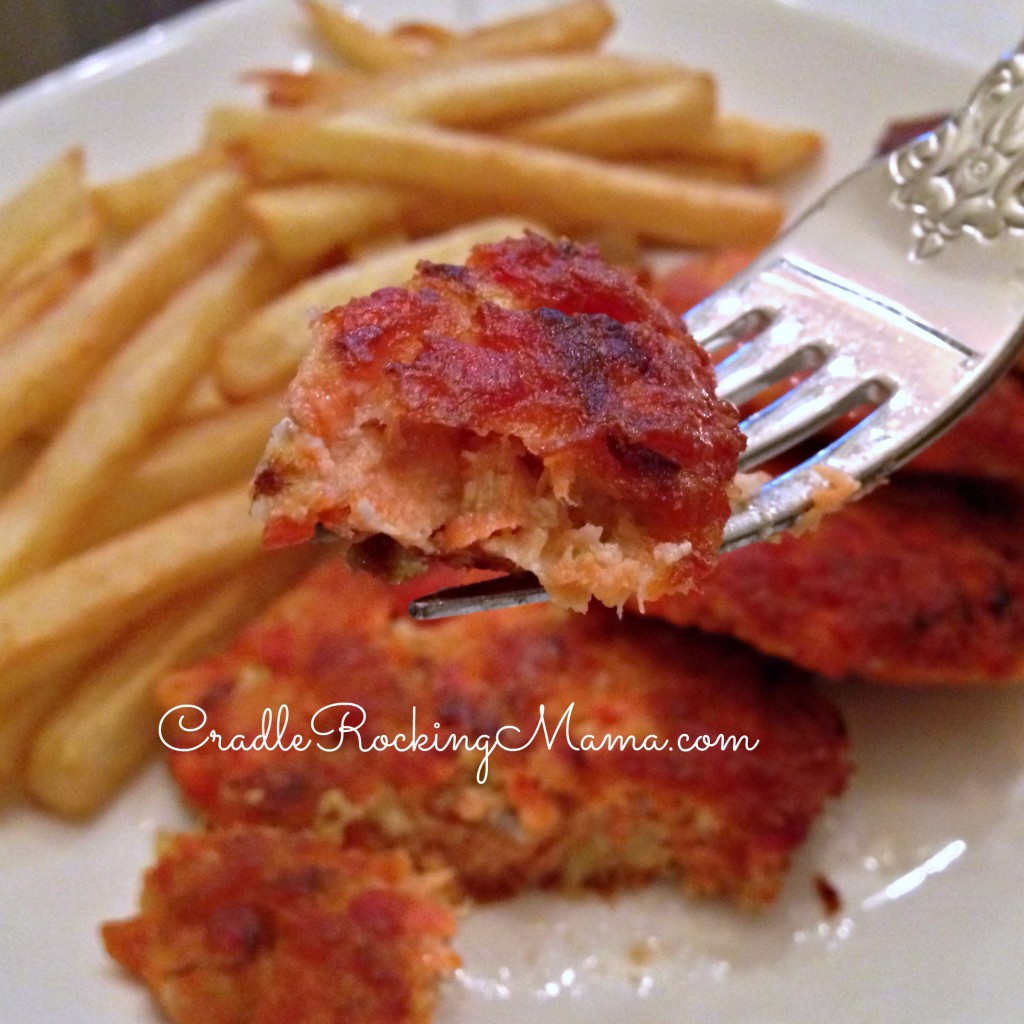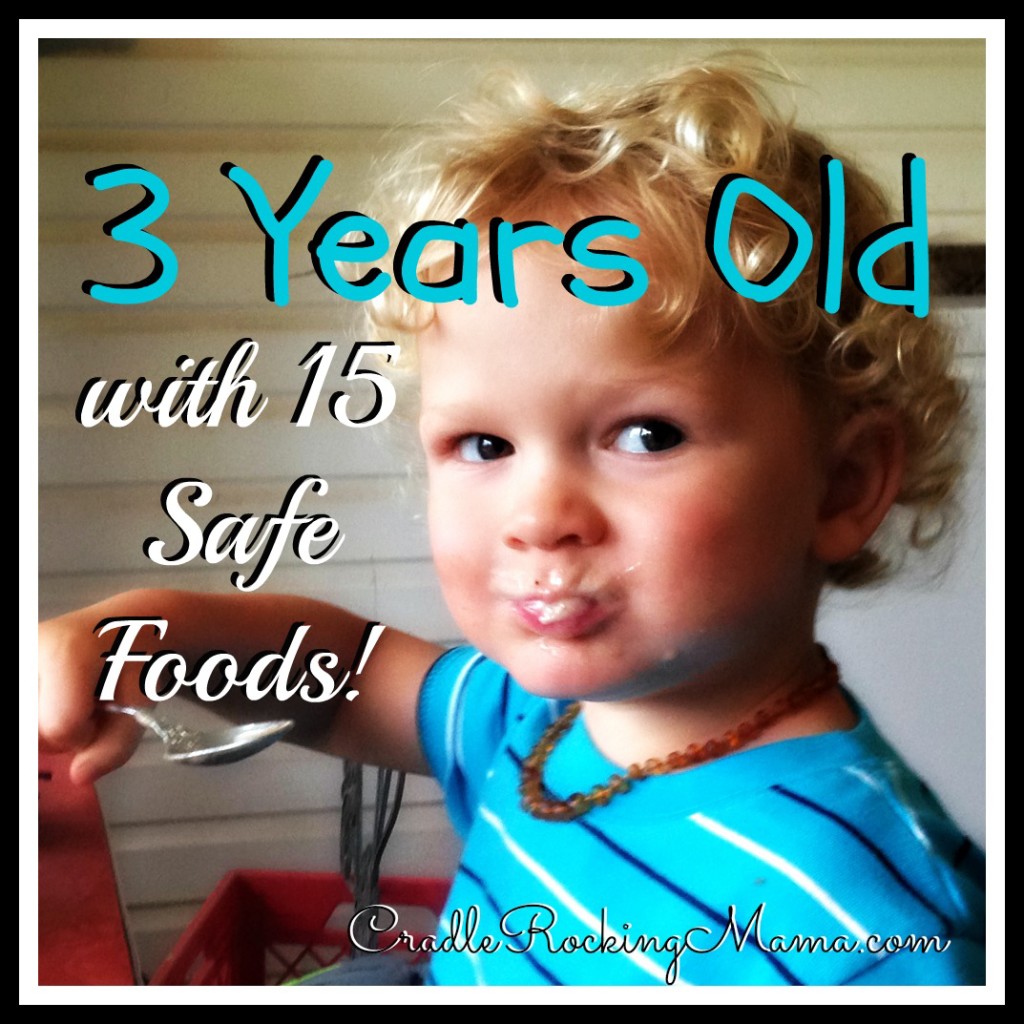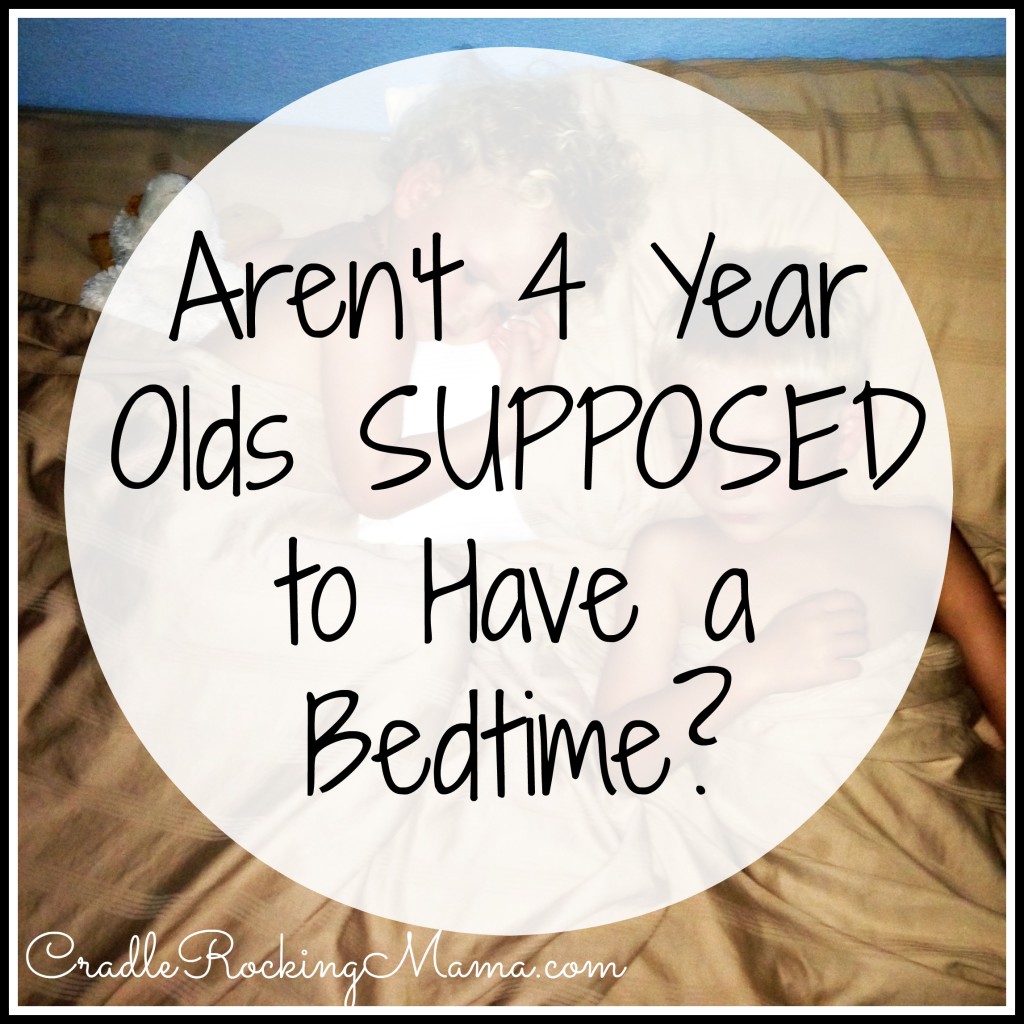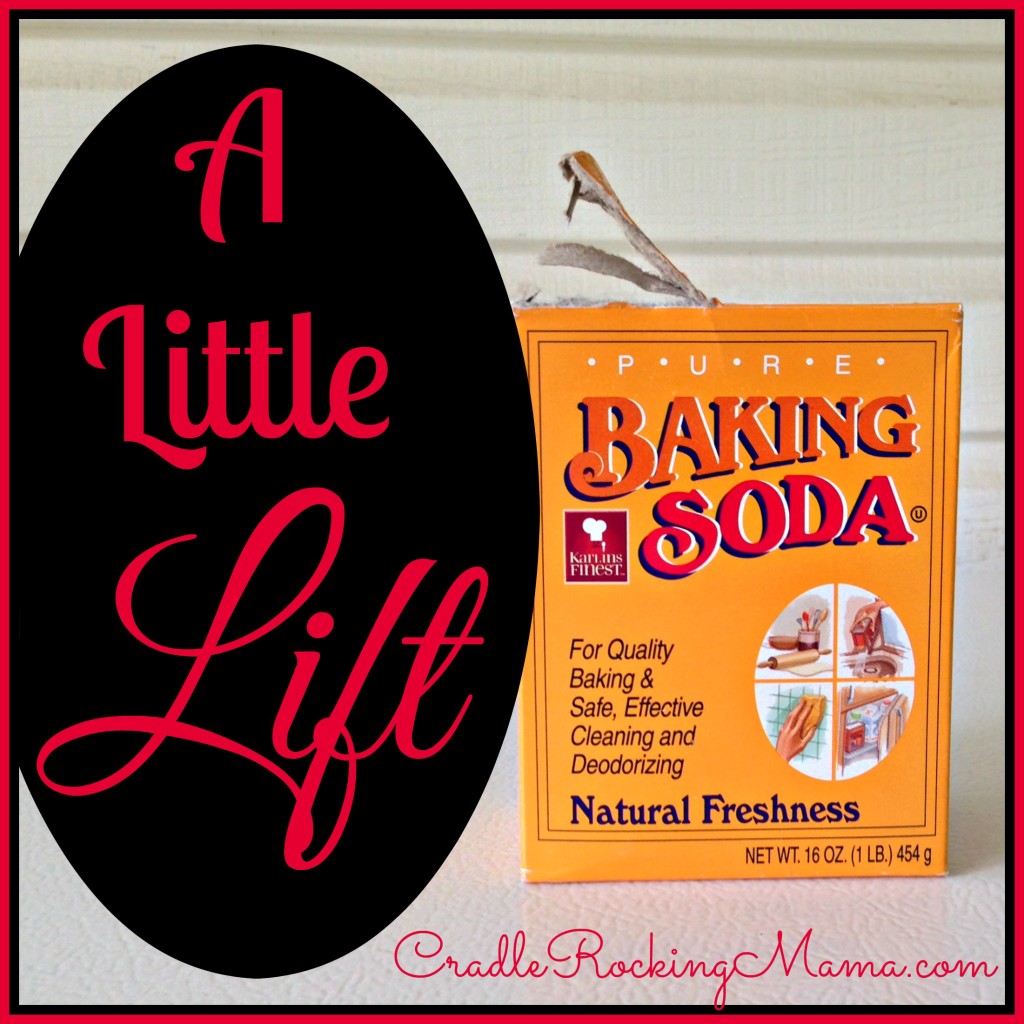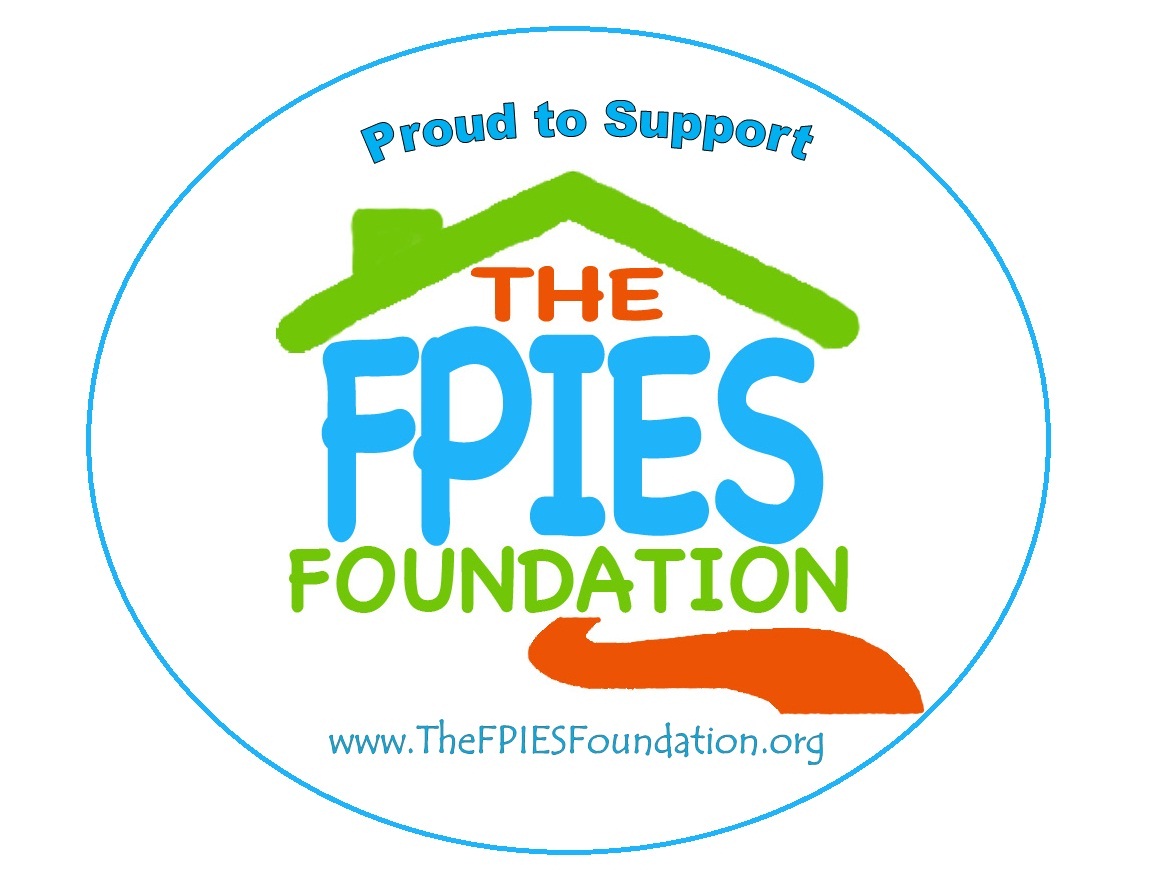Beyond concerns about the education system, socialization of our children, and food safety, there are a few other, little (and not so little) things that answer the question of why to homeschool. This post wraps up the series by addressing those little (big) things.
First, a logistical issue. We live in the country. The schools my children would attend are about a 20-25 minute drive away from our house.
I’ve observed the children in my area being picked up by the school bus at around 7:00 a.m., and being dropped off after school hours between 3:45 and 4:15 p.m.
If you’re keeping track, that means the kids are out of the house by 6:30 a.m. (because the school bus pickups are not AT our house; we would have to drive them there) and not home until 4:30 p.m.
TEN HOURS.
Ten hours out of every 24, my kids would be gone.
Since they sleep 11 hours per night, getting fed and ready for school would easily take an hour, and dinner time means a good hour and a half we are occupied, that means that if my children were to attend public schools, we would have a mere 30 minutes a day to spend any sort of fun, quality time as a family.
30 minutes.
We may as well ship the kids off to boarding school at that rate!
I could increase our quality time together by driving the kids to and from school every day, but that is easily 80-90 minutes of my day dedicated to just driving, to net us only an extra hour or so of time with the kids.
I’m sorry, but that is ridiculous.
Now for a not so little concern. The decision to homeschool, for me, began with concerns about public schools. When our food issues first began, I started thinking more seriously about the idea. Over the years of observing the school bus schedule, I really began researching how to homeschool.
However, it’s only recently that I’ve begun growing convicted that homeschooling is the right choice for our family.
Yes, convicted.
After reading more about homeschooling, I started to look at homeschooling through the lens of my faith.
God says to raise your children up right, and when they are grown, they will not waver. He also says to be in the world, but not of it.
Both of those are really good admonitions, and both are a true challenge to achieve in the world today.
It is concerning to see what our modern culture glorifies, and what it ignores. You can hardly turn around these days without encountering something unwholesome, perverse, cruel, or just inane.
I’m disturbed by stories of teenagers hooking up, having babies, doing drugs, flaunting authority, eschewing responsibility, and even more concerned with the observation that those behaviors often continue well in to adulthood.
Harder to find examples of?
Honor. Integrity. Loyalty. Kindness. Truth. Respect. Faith. Hope. Charity. Love.
This world is a fallen world, and always has been. I can’t change that, and I can’t stop my children from living in it.
But I believe this world encourages children to grow up too fast, before they are prepared to cope with the world in a healthy way.
So while Darrel and I cannot change the world, we can try to do as God commands and raise our children right, helping them encounter the world in a judiciously controlled way.
They will not be denied the modern world, but we will expose them to facets of it as they are ready for it, not at ages far too young to understand what they are seeing, hearing, or reading.
I pray that by homeschooling, thereby remaining the primary influence in our sons lives, they will grow to be strong men of integrity who can seamlessly wander the world without being eaten up, churned around, and spit out by it.
I’ve grown convinced that while God doesn’t explicitly say to homeschool, choosing to homeschool is the right way for us to attempt to live up to the other things God does want us to do.
On a less serious note, I look forward to the future, when I can finally utilize my job in a way that will make all the challenges I’ve been enduring this last year well worth it.
Free flights anywhere in the world, folks! Can you imagine a better way to teach the boys about WWII than to walk them through Dachau, see where the Berlin Wall stood, visit Pearl Harbor, and walk the beaches at Normandy?
What about Ancient Greece by visiting the Parthenon? Or the Roman Empire by a day at the Colosseum?
Stonehenge, the Tower of London, the Great Wall of China, maybe a trip Down Under?
The Revolutionary War by visiting Boston, Philadelphia, and Baltimore?
That’s what I call making history come to life!
We will someday have the opportunity to take a month or two every year and spend it doing intensive, hands on teaching via travel. The boys will learn languages, history, math (using currency exchange and budgeting for the trip), and more. Public schools just can’t offer that!
My kids will someday get to learn the history and languages of the world first hand, and Darrel and I get to go along for the ride.
I simply can’t wait.
Homeschooling is not the right choice for all families.
I know that, and have absolutely NO condemnation for anyone who chooses other options – including public schools.
My only hope in writing this series was to share our reasons for making this decision for our family, and encourage you to consider your options for what is best for your own family.
The decision on how to raise and educate our children is an important one, and conversation about the many options available can only bring about good things.
Deliberate actions always bring about the best results; I hope we will all be deliberate about raising our little future adults.
Read the whole series:
Part 1: Concerns About Public Schools
Part 2: Socialization
Part 3: Food Issues
Part 4: The Little (Big) Issues






